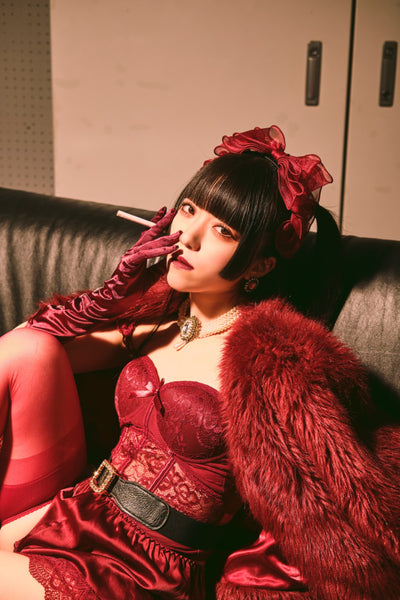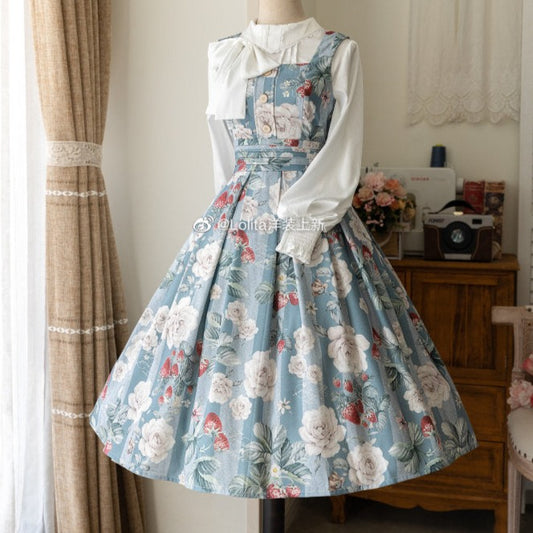It's been quite some time since I decided to write this article on this topic.
All the novels I'd read up until now were stories like my old self.
When you're inside, you don't even realize you're inside.
All of the books I've read feature protagonists who are in the "center" of a life full of contradictions and momentum, choosing a circuitous path, and for some reason I no longer feel like writing this article.
Having just undergone a change, I found myself unable to feel nostalgic as I flipped through the books in front of me, and instead felt like dismissing them.
If I were to re-read it, I would end up reminiscing about the past, so please allow me to write from a slightly different perspective...
Yamada Eimi "Princess"
I noticed that when a person suddenly decides to die, they feel something similar to the sensation of rushing through the ticket gate when the train they want to catch is right in front of them.
Many times in my life, I have said "I want to die" to mean "I want to run away from evil and be happy without having to try so hard."
When you realize you're going to die, you're not at a point where you can calm down, and it doesn't even cross your mind to write a will, nor do you have the time to call your friends to say goodbye.
My makeup was half done, my face was half done, the music was still playing, I hadn't even had my last cigarette in mind, and I couldn't see anything. I was extremely anxious.
Tokiki, the protagonist of "Princess," says, "There are people who have circumstances that make them want to die," and "Once you become needed by others, you no longer even have the freedom to die."
I found myself feeling both of these emotions and after much panic, I chose the latter and called a friend.
I realized that being loved by someone comes with a great deal of responsibility, and that as long as you are involved with other people, you cannot just die on your own.
He talks big about love, sex, and music, tries to please people, and lives in a slightly unorthodox position.
That's the kind of story the protagonist is talking about. It's a story that really makes you realize how one's family environment during adolescence can have a huge impact on who they are.
I was actually thinking of writing about Natsuo Kirino's "Daku Onna" here as well, but I gave up because I found it difficult to read a novel packed with themes like the 70s, student movements, idle days, sex, chasing dreams, and family problems that continue to haunt one even after becoming an adult.
I would recommend this book to anyone who is in the midst of something like that, just like "Princess."
Yoko Ogawa "Hotel Iris"
I have written frequently about age gap love and girlishness, so I would recommend this book to anyone who has even the slightest interest or experience.
It is the story of a 17-year-old girl who works as a receptionist at Hotel Iris and an older man who once visited the hotel as a guest.
A poisonous mother, a beautiful daughter, a sadistic man... various scenes are beautifully interwoven.
"I never expected to be having a conversation like that with you on a Sunday afternoon in the waiting room of a cruise ship.
At this age, most things are predictable. I don't get upset or sad unnecessarily.
I will continue to prepare myself mentally so that I don't have to worry about it anymore."
The man sent a letter to the girl.
This article made me realize that for an older man, coming into contact with a young, beautiful woman is always something close to a miracle.
While talking to the girl, the man recalls , "It was as if he was afraid that if he made a mistake, the girl in front of him might break to pieces." Along with his concern that youth is fragile, we also sensed a strong desire not to lose the young woman in front of him.
The appeal of this novel lies in the sharp insight it offers into the essence of the story, amid a variety of beautiful scenes such as port hotels, yachts, and glamorous restaurants.
"Sleeping Beauty" by Yasunari Kawabata
This is a highly perverted piece of literature in which the protagonist, Eguchi (67 years old), indulges in the body of a young woman who is put to sleep in a secret mansion.
This is a story that is different to blatant sensuality; it also offers a glimpse into the true feelings, brazenness, wickedness and honest desires of human beings, hidden behind a veil of refinement.
This book makes you think about whether humans instinctively want to cling to a younger body as death approaches, or whether it's out of lust, or whether it could be both.
The customer service style, in which the girls are put to sleep, which seems to completely wipe away all emotion from the modern nightlife industry, is cruel and unbearable.
The story is also fascinating as it depicts the elderly Eguchi facing, reflecting on, and reminiscing about his past as he sleeps next to a naked woman, making this a book worth reading as the seasons change.
Yuzuki Muroi "Tropical Botanical Garden"
As I was reading the story, I assumed that the story was set in the late 1960s, based on the scene where the character hums "Season of Love" and the restaurant "Chianti," which was famous for being visited by Mariko Kaga and Kazumi Yasui at the time.
The main character, Yumi, is a 16-year-old high school student.
The main characters are the father "Jun," his father's lover "Yumi," and his older lover "Takashi" who is in his thirties.
The story depicts in great detail the precocious and grown-up attitude that is typical of high school girls, their desire for excitement in extraordinary events that are contrary to the normalities of student life such as sex and housework, and the laziness and cold outlook that are the opposite of excitement, all of which are typical of adolescence and are in between being a woman and a girl.
"I think that to the working man Takashi, I'm a jewel he came across by chance. I'm like a cat that snuck into his futon. I'm an extension of the plastic models he was obsessed with as a boy."
The words Yumi said to Takashi are my favorite because they perfectly capture the essence of unbalanced couples, including those with an age gap.
I think that the true nature of men who place value only on youth and physical beauty and prefer women who are not worthy of them is that they are very immature and dreamy.
Even if women who prefer men who are a generation older than themselves have a higher mental age than their actual age, I think that men who prefer women who are a generation younger than themselves often have a lower mental age than their actual age.
In any case, this book is recommended for anyone who is bored with their daily routine, as it provides the kind of stimulation that can only be experienced during adolescence.
It's easy to mistake Hitomi, Misa, Erina, and Tomoko for bad friends and classmates.
It's fun to have fun in your own small world sometimes.
I first came across this book when I was 17 years old, and it has been my favorite book in the world ever since.
I will definitely recommend this book to anyone I like.
I always end up reading books that are full of women, but I think what's appealing about these books is that there is always a man behind them.
I don't like sensual books, but I want to know the calmness and essence behind the sensuality.
There are many more books I would like to introduce, but I will leave it at that for now.
Author: Aya Akagi

Currently serializing the column "Wandering Literary Lover" in FREEZINE


![Limited special price [Set sale] Classical Sweet Ribbon and Check Jumper Skirt + Panier](http://ronron-lolita.com/cdn/shop/files/midorifukasawa_3004bde9-383b-4014-a9a1-77129e2a4482.png?v=1729846602&width=533)


![[Pre-order] Edwardian Elegant Lace Classic Lolita Dress](http://ronron-lolita.com/cdn/shop/products/O1CN013Kl7z82GOLFjQCYBa__57119005.jpg?v=1709854965&width=533)





![[Worn by Midori Fukazawa] Classical Sweet Ribbon and Check Jumper Skirt](http://ronron-lolita.com/cdn/shop/files/21_1.png?v=1729737597&width=533)

